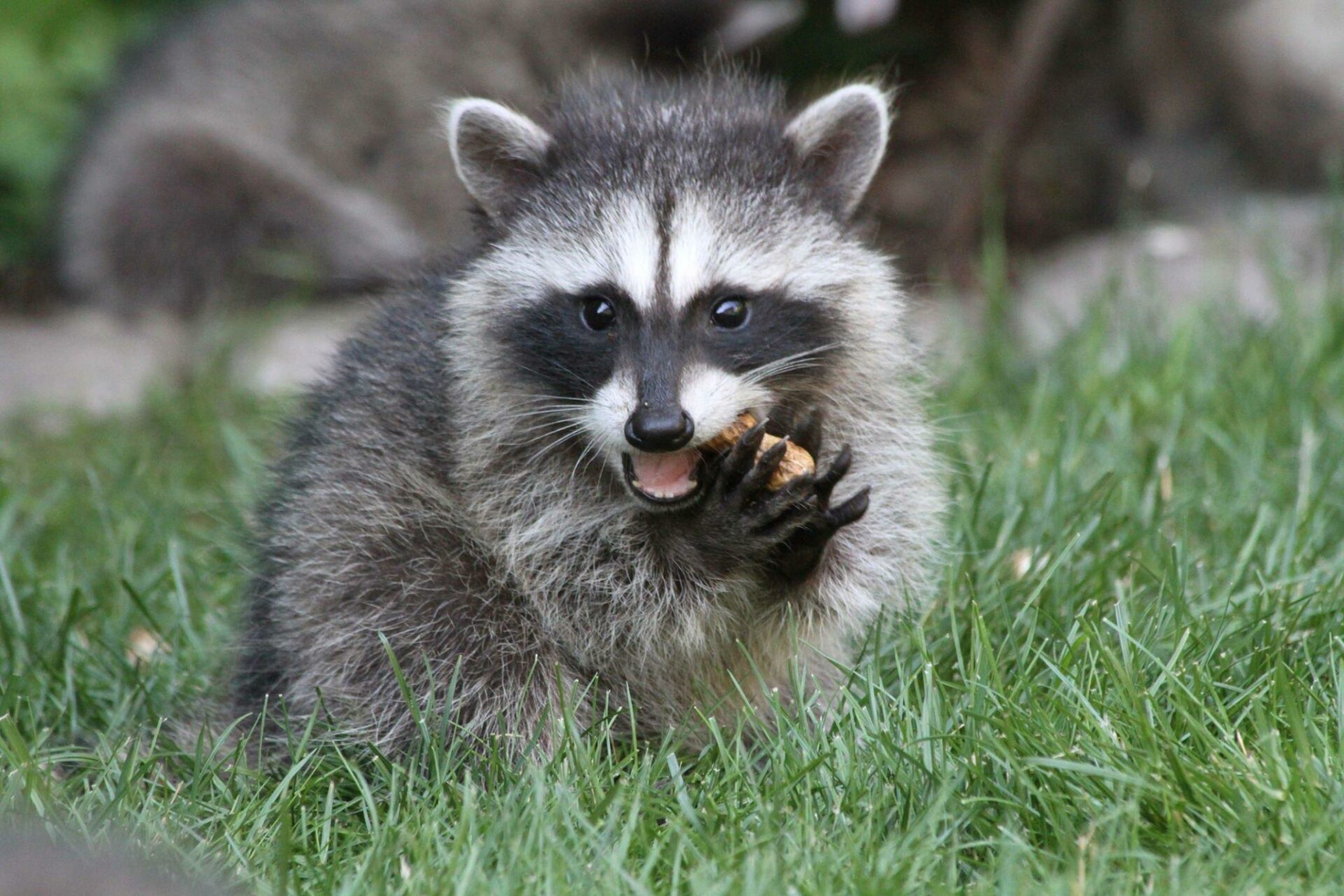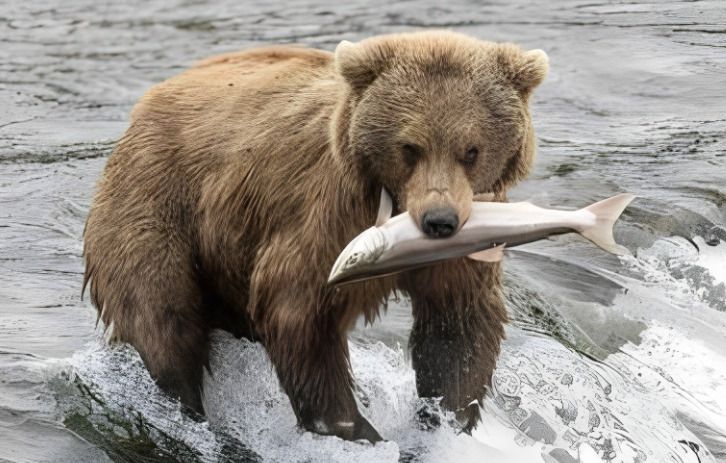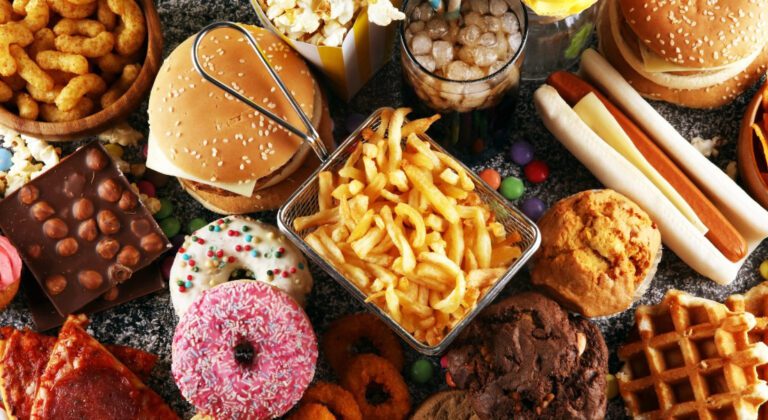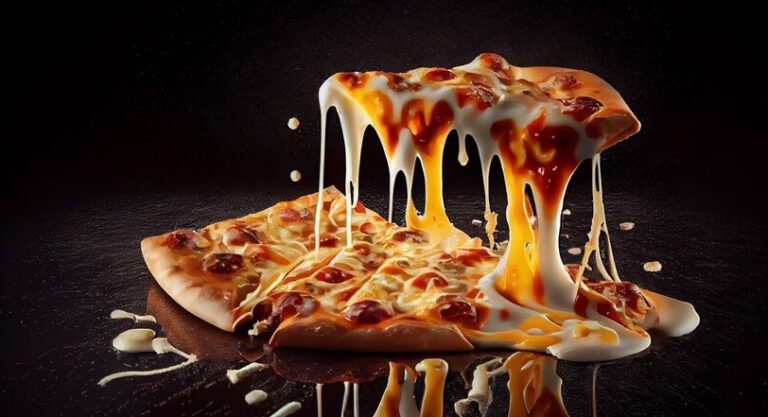Discover Raccoons’ Favorite Food: What Attracts These Nighttime Foragers?
Explore the diverse diet of raccoons and learn what foods attract them most. From fruits to insects, uncover the top favorite foods of raccoons and tips on managing their visits. Click to know more about these intriguing creatures’ eating habits!
Introduction
The curiosity piqued by these mischievous critters we frequently see roaming about at night piqued our curiosity about their eating preferences. In order to obtain a better understanding of raccoon dietary habits and behavior, we will embark on an exciting journey into the world of raccoons and their culinary preferences.
Raccoons’ Favorite Food
Ah, raccoons have quite the varied palate! Their favorite foods include goodies like crayfish, frogs, fish, and other aquatic treats. But they’re not picky eaters—bugs, eggs, fruits, veggies, nuts, and even the occasional deceased critter can make it onto their menu. These clever critters are known to explore and indulge in a wide range of foods, making their favorites quite diverse.

Raccoons have an impressively varied diet, but some foods are definite favorites. Among their most cherished treats are crayfish, which they skillfully catch with their dexterous paws in creeks and streams. Raccoons also enjoy feasting on frogs and fish, taking full advantage of their aquatic hunting skills.
On land, these resourceful creatures have a strong appetite for insects, which provide them with essential proteins. Eggs are another top choice; raccoons will often raid nests to snack on them, showcasing their opportunistic eating habits.
Their diet is also rich in plant-based foods. Raccoons particularly love fruits like berries and apples, which they find in the wild or in urban gardens. They also consume vegetables and are particularly fond of corn. Nuts, especially acorns and walnuts, are a fall favorite, providing them with fats and nutrients needed for the colder months.
These favorites illustrate raccoons’ flexible and opportunistic dietary habits, allowing them to thrive in diverse environments, from wild forests to urban backyards. Whether they’re fishing for crayfish or picking through a garden, raccoons are truly adaptable eaters.
Unveiling the Palatable World of Raccoons in Detail
A Delectable Palette
There is evidence that raccoons have a diverse palate that allows them to eat a wide variety of foods, from fruits to insects, and these omnivores show a high degree of adaptability when it comes to their diet, thriving on both natural and man-made foods.
Natural Indulgences
Foraging in the wild is the main source of food for raccoons, which includes berries, nuts, and even vegetables. The raccoons’ nimble claws allow them to handle these edibles efficiently.
Protein Picks
Aside from plant-based treats, raccoons also enjoy protein-rich foods, such as insects, small rodents, and even bird eggs when available. Such a diverse diet shows the adaptability and resourcefulness of these creatures.
Urban Delicacies
Raccoons have developed a penchant for human-supplied delicacies due to their adaptability and ability to seamlessly integrate into urban environments. They have demonstrated an appreciation of the food we provide for them by scavenging through garbage cans to find leftover human food and raiding pet bowls.
The Myth of Junk Food
The diet of a raccoon is comprehensive and includes a variety of natural and human-provided foods. It is a myth that raccoons are entirely dependent on junk food. Raccoons consume a variety of natural and human-provided foods.
Seasonal Preferences
Raccoons’ food preferences fluctuate according to the season. Their food preferences may vary according to availability, with certain types of food preferred at certain times of the year.

Insights from Experts and Observations
In recent years, numerous insightful observations and revelations have been made about the culinary preferences of raccoons, which have fascinated experts and observers alike.
Expert Perspectives
Research has been conducted to unravel the mysteries surrounding raccoons’ dietary habits, demonstrating the adaptability of these creatures, revealing their varied diet is influenced by their environment. They examine raccoon ecology deeply, emphasizing their impact on local ecosystems through their food choices, emphasizing the ecological role of raccoons.
Wildlife Biologists’ Findings
Researchers have uncovered fascinating patterns in the dietary preferences of raccoons through meticulous observation and field studies. In their study, they demonstrate that the creatures are sensitive to changes in food choices across the seasons, emphasizing their adaptability to changing environments. Raccoon survival strategies and ecological interactions have been explored in this study, providing valuable insights.
Naturalists’ Observations
Observations made by naturalists deeply immersed in wildlife behavior provide valuable insights into raccoons’ culinary habits. Their meticulous observations illustrate how raccoons are able to adapt their diet to meet the needs of various food sources. These creatures exhibit behavioral nuances such as foraging techniques and diet adaptations, demonstrating their adaptability and survival capabilities.
Behavioral Ethologists’ Discoveries
A behavioral ethologist, who is a researcher who specializes in decoding animal behavior, has examined the feeding behaviors of raccoons. The cognitive aspects of raccoons’ acquisition and consumption of food have been explored by researchers, revealing the creatures’ adaptive strategies and problem-solving abilities when faced with varied types of food.

Raccoons Favorite Food: Myths vs. Reality
Many people assume that raccoons are vegetarians, but this is not true. Myths often surround raccoons’ dietary preferences, masking the truth about what these intelligent creatures prefer to consume.
Dispelling Misconceptions
Many people believe that raccoons prefer to eat junk food provided by humans, however this narrative oversimplifies their extensive dietary habits, overlooking their natural inclination to consume a broad range of foods.
Reality Check
Contrary to popular belief, raccoons have a broad range of food choices. Despite their adaptability, raccoons are able to thrive on a diverse menu that includes natural and human-influenced food sources. They may explore human-provided food sources, but their diet includes far more than processed foods.
Understanding the Nuances
Taking a closer look at raccoons’ diet reveals a more nuanced picture. Because of their foraging instincts, raccoons consume a wide variety of foods, including fruits, nuts, insects and small animals. Their adaptive nature, which is necessary for survival in rapidly changing environments, is illustrated in this versatile dining style.
Role of Environmental Factors
There is a misconception that environmental factors influence raccoons’ diets. They demonstrate their resilience by adapting their diets in response to seasonal variations and food availability.
FAQs
What do raccoons eat primarily?
Fruits, nuts, insects, small animals such as rodents and bird eggs, as well as small animals such as rodents, are believed to be the primary diet of raccoons.
Do raccoons solely rely on human-provided food?
It is a fact that raccoons are opportunistic feeders and they consume a wide variety of natural resources as well as food provided by humans, which is what makes them an opportunistic feeder.
Are raccoons’ dietary habits harmful to the ecosystem?
The raccoon’s dietary habits are one of the most important parts of how they behave naturally, and they are also crucial to maintaining the ecological balance of the environment through their natural behavior.
Do raccoons have a specific favorite food?
There is no single food that raccoons are fond of; this is due to their diverse diets and versatile nature. They are unable to identify a single food that they enjoy most; they thrive on a variety of different foods.
How do raccoons adapt to seasonal food availability?
Raccoons adjust their diet based on the changes in the seasons by altering their food choices depending on what foods are readily available at the current time and what foods are suitable for them.
Can feeding raccoons human-made food be detrimental to their health?
Raccoons might consume some human-made food as part of their diet, but relying exclusively on it could negatively affect their health, as it is part of their diet and needs to be eaten in moderation.
Conclusion
It is easier to understand raccoons‘ adaptability, resourcefulness, and ability to thrive in a variety of environments if you understand how they eat. It is evident from their eclectic diet choices and adaptability that they can thrive in a variety of environments. While raccoons are known for their versatile palate, it is clear that they are well versed in the art of culinary adaptation, even though the favorite food of raccoons remains a mystery to us.







